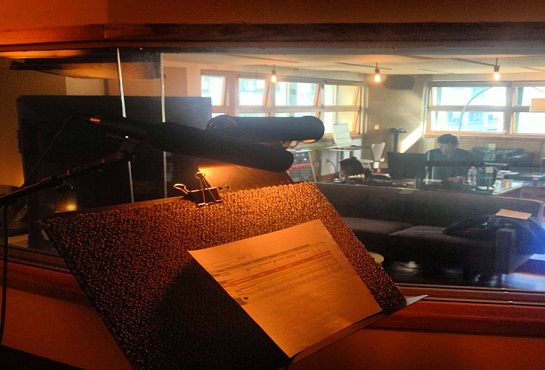Spilling coffee, dropping papers and being late are all normal nightmares for beginners in any industry. As a beginner, there will always be something new to learn and things won’t always go the way you expect them to. In the voiceover business it can seem overwhelming seeing all of the screens and cables and microphones surrounding you, but do not fret! We have some tips on how to make this experience as a beginner less stressful.
Yes there are many skills that are required once entering the voiceover industry, but when you’ve got the talent the rest is just part of the package. As opposed to the usual “learn as you go” process, in this profession there are a few things you need to know before you begin. You might consider to attend voice acting classes with experienced actors and at the same time consider what you need to set up your business as an independent voice artist.
What You Should Have
In this guide to voice acting, we will be talking about the necessary objects you need when you decide to go into voice acting. You need to invest on quality hardware and software to be able to start. Fiona Thraille, an actor, writer, and audio mixer lists these things.
- Microphone. A microphone to a voice actor is like a tongue to a toad. It is their source of living. It is where all the magic begins. Now, you might think that voice acting is an expensive hobby, but it doesn’t have to be. There are a lot of microphones available in the market that fit various price ranges and fit your budget. Choose a condenser mic with a cardioid pattern. Read reviews on brands like Rode, SE or Studio Projects. If you can afford it we advise you invest on a Spark from Blue (you can even record on an iPad) or the very best Neumann TLM 103.
- A Working PC/MAC. A large chunk of the process such as editing is done in a computer. A powerful computer, whether laptop or desktop, will do, as long as it can run the software you need smoothly. Make sure the sound card is powerful M-Audio is a good choice.
- Headphones. They should be conveniently insulated preferably with a ring of thick foam. Just make sure that they have a broad frequency range to allow you to listen to any puffs and other strange noises so you can properly edit your recording. Sennheiser or Sony have
- Audio Software. Lastly, you need a good recording and editing software like Sound Forge or ProTools. There are heaps of these around the internet. Some are paid while some are free like Audacity. A good audio software depends on its ability to use many formats which is handy when it comes to importing audio and especially when you have to export to a specific compression like exotic uLaw for IVR prompts. Another criteria to choose the right software is its capacity to import and process video, something very important when you want to do dubbing, voice-over to video.
What You Should Do
The key factor in voice acting is practice. In a voice acting forum, members discuss exercises and steps you need to do in preparation to becoming a voice actor. But, this does not mean that you will only do this in the start. Practice is an ongoing thing in the voice acting industry. So, do these as much as possible.
- Breathing. Find a flat hard surface where you can lie on your back comfortably. Then, just breathe like you always do. Soon, you will feel your abdomen expand as you inhale and contract as you exhale. This is breathing with your diaphragm. Practice doing it until it feels natural.
- Expanding Your Voice Range. Widening your voice range means more opportunities for you since you will be able to voice more characters. There are many ways to do this. You can listen to different voices and try to play with your voice to sound as close to the original as possible.
- Articulation. This is also very important in voice acting. Many trained and known voice actors would say that it is more important to be clear than to be loud. That can’t be stressed enough. Tongue twisters are the easiest to access to practice your articulation. [“How much wood would a wood chuck, chuck if a wood chuck could chuck wood?”]
What You Should Possess
In this part, we will discuss the traits and attitude needed to be successful in voice acting. A member of DeviantArt wrote an article entitled Voice Acting for Morons. The title seems a little vulgar but he wrote really awesome content. Here are some of them:
- Confidence. A lot of voice actors end up being successful because of their confidence. In voice acting, there can be times when you feel that the whole set up is silly or funny. Or, there may be times that you feel that people will laugh at what you do, especially when you try to do exercises to practice. Do not mind them and be confident that you will be making the best recordings.
- Personality, because personality equals acting. When you are voicing a character, you are not simply giving voice to the character. You are the character. As a talent, you should be able to identify who is the character, what are his emotions, and many more so it is easier for you to step in.
HERE IS SOMEBODY WITH CONFIDENCE!
After all these, you might think that voice acting is a very difficult hobby. Well, it is, that’s why it’s a profession, therefore you need to be really committed to it.
What are your thoughts? Comment below!

RT @DirectVoices: A Beginner’s Guide To Voice Acting:
Tips and tools to start a career #VO #voiceover
http://t.co/rFqieByk
Sergio Angeletti liked this on Facebook.